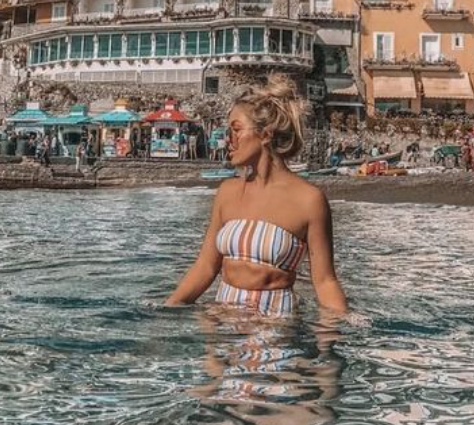The Great Barrier Reef is the world’s largest coral reef system and is made up of 900 islands over 2,300 kilometres. A trip to Cairns would not be complete without a visit to the reef.
The Great Barrier Reef is a diverse ecosystem made up of over 400 types of coral and over 1,500 fish species. It has some of the most extensive coral formations I’ve ever seen in reefs across the world. To miss the reef you’d be missing one of our world’s natural wonders – it’s worth it! Boats leave for the outer reef every day. However, during COVID there’s less tourists around so less boats visiting the reef. There’s never been a better time to support local tourism and see this world heritage wonder.

When I arrived in Cairns, I made a number of calls to local dive companies to help inform my decision on which company to dive with. I enquired about cost and what that included. Some companies provide lunch – it’s worth asking what kind of lunch. I like to understand how many people will be on the boat, how many divers are scheduled to go diving and how many groups are being proposed. It’s a good idea to understand if you’re a beginner diver you’ll get the extra attention you deserve. If you’re a more experienced diver, it’s nice to go with an experienced group. As someone who often suffers from sea sickness I like to understand how big the boat is and what the weather forecast is.
It’s important to understand where the boat plans to go. Will it be an off shore dive or somewhere closer to Cairns? To experience the Great Barrier Reef you should expect about a 90 minute boat ride to the reef.
I ended up choosing TUSA Dive and was really happy with my experience. The captain and the entire crew were very helpful and had safety top of mind. The boat was comfortable for the journey out to the reef, but also provided a lot of room to spread out during the day.
TUSA have access to over 16 outer reef dive locations meaning there is plenty of flexibility depending on weather conditions.
 Coral trout
Coral trout
Diving Great Barrier Reef will cost about $200 for two dives. This is very consistent across the diving companies. That will usually involve a full day on the reef, lunch, water and reef safe sunscreen.
TUSA also has a photographer and marine biologist on board. They offer photo packages for a reasonable fee. The photos included in this blog post are courtesy of TUSA.
If you are not a certified diver that shouldn’t stop you from visiting the reef. The majority of boats visiting the reef do take snorkellers. You can also see if the dive company offer discovery dives. These are beginner or introductory dives for those with little to no experience. It’s a great way to experience the reef and get a bit of extra help.
 Sea anemones with resident clown fish
Sea anemones with resident clown fish
While there are over 1,500 fish species and 3,000 coral species you can expect to see a lot of diversity.
I’ve been diving for over ten years now and fortunate enough to experience many dive spots in North and South America, Asia, Europe and Australia. I’d have to say though in all my diving experiences I’ve never seen such extensive coral formations and varieties. There were many varieties I’d never seen before.
The next few photos captured by TUSA, show the wildlife, fish and coral I was fortunate enough to see while diving Great Barrier Reef.
 Sea turtle
Sea turtle
Green turtles are the most common of the six turtle species that are found on the Great Barrier Reef.
 Diving with clown fish or ‘nemos’
Diving with clown fish or ‘nemos’
A clear highlight was being able to see clown fish in their anemone – which is their home. While the sea anemone is poisonous, the clown fish is the only species that can survive the sting of the anemone.
 Giant Clam
Giant Clam
Giant clams (above) are a mollusc and can weigh up to 200 kilograms.
The cuttle fish below change their colouring to blend into their surroundings to hide from predators or bright colours to attract a mate.
 Cuttle fish
Cuttle fish
The reef is sadly declining in size and health. This is due to a number of factors such as coral bleaching, pollution and predators like the crown of thorns starfish. This doesn’t mean you won’t have a fantastic experience but it should place a greater influence on your decisions while enjoying this natural wonder.
Please remember these golden rules:
- Don’t stand on or touch the coral
- Use reef safe sunscreen
- Take your rubbish with you
- Respect the wildlife and give them space

For help planning your Far North Queensland adventure, check out my other resources:

Amy is the enthusiastic traveler and seasoned writer behind FollowTheSunSeeker.com. With a master’s degree in Travel and Tourism Management and over 6+ years of exploring the world, Amy combines her in-depth knowledge with a passion for storytelling to create captivating travel content. Her blog is dedicated to discovering hidden gems, offering practical travel tips, and sparking wanderlust in her readers. Join Amy’s adventures and find travel inspiration on Pinterest: FollowTheSunSeeker.
